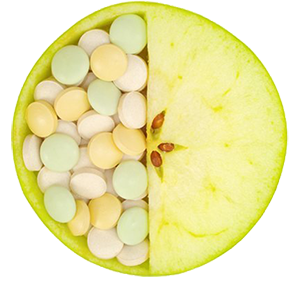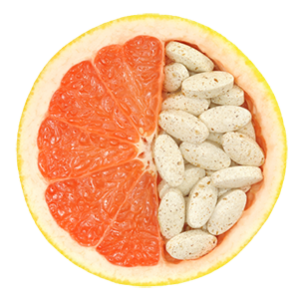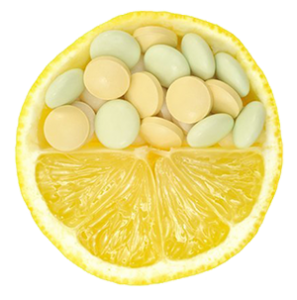Debunking 10 myths about vitamins
REAL VITAMIN DEFICIENCY IN OUR DAYS IS RARE, and most of the vitamins in sufficient quantities to food. However, it may seem that the food is not so simple — for example, you can hear that when freezing vitamins are lost, and they can destroy some anti-vitamins. Is it true that pregnant women need vitamin complexes? If we take vitamins, is it not better in the form of injections? We understand these and other common misconceptions about vitamins.
Vitamins are found only in fresh vegetables and fruits
Fresh fruits are really rich in vitamins, but some boiled or frozen vegetables and fruits may contain more vitamins and other useful compounds. For example, studies have shown that people who preferred raw tomatoes received a lot of vitamin C and A, but did not receive lycopene (along with vitamin a, it is part of the group of carotenoids and is a strong antioxidant) — it is only in thermally processed tomatoes (or tomato sauce). The heat benefits from the availability of vitamins a, d, e and K.
 According to the results of research, the ideal option for cooking carrots, zucchini and broccoli — steamed, slightly less favorable for vitamins cooking, and closes the rating of frying. Warming up in the microwave better preserves vitamins than heating on the stove. Freezing also does not harm vitamins — and the level of vitamin C in frozen foods may be higher than in fresh ones. We talked about the best methods of cooking vegetables; recall that the key to obtaining all the necessary substances — a variety of diet.
According to the results of research, the ideal option for cooking carrots, zucchini and broccoli — steamed, slightly less favorable for vitamins cooking, and closes the rating of frying. Warming up in the microwave better preserves vitamins than heating on the stove. Freezing also does not harm vitamins — and the level of vitamin C in frozen foods may be higher than in fresh ones. We talked about the best methods of cooking vegetables; recall that the key to obtaining all the necessary substances — a variety of diet.
Vitamin D is produced enough if you are in the sun
Taking a multivitamin if you eat a variety of foods is usually pointless, but vitamin D is an exception to this rule. As a rule, not in the sun season we get enough ultraviolet light to produce it — and in the sun protect the skin, not allowing the rays to penetrate it. This is the right strategy, because preventing melanoma or another type of skin cancer is more important than ensuring the production of natural vitamin D — but then you need to take it separately.
According to various sources, an adult needs to take 600, 1000 or even more international units (IU) of vitamin D per day, but it is necessary to clarify the dosage together with a doctor after a blood test. The main food sources of this substance are salmon, herring, mackerel, fresh tuna, red meat, liver, egg yolk and milk (especially fat).
Vitamins are not digested due to anti-vitamin
Anti-vitamins are compounds close to vitamins in chemical structure, but have the opposite effect. Anti-vitamins are included instead of vitamins in the reaction of metabolism and inhibit or disrupt their normal course. On the Internet you can find information that in cucumber contains that destroys vitamin C — therefore, the tomatoes in a salad with cucumbers lose their useful properties. Actually in many fruits and vegetables, and she activated in violation of the integrity of the fruit so that the chopped vegetables are best to eat quickly. On the other hand, in the same tomatoes, vitamin C is quite small, and even with its loss, many other nutrients are preserved. In General, judging by the sluggish discussion of anti-vitamins in the academic environment, the problem of their existence is not so critical, and the best advice that will help reduce their negative impact is to eat more different fruits and vegetables. Stable intake of vitamins compensates for the effect of their antagonists.
 Some anti-vitamins (no longer from products, but in pure form) are used for medicinal purposes. Thus, vitamin K plays a role in blood clotting — and for those who, on the contrary, need to dilute the blood, using a whole group of drugs — vitamin K antagonists.this medicine, which is taken by a doctor — and this once again confirms that the effect of anti-vitamins contained in products, insufficient to neutralize the action of these vitamins.
Some anti-vitamins (no longer from products, but in pure form) are used for medicinal purposes. Thus, vitamin K plays a role in blood clotting — and for those who, on the contrary, need to dilute the blood, using a whole group of drugs — vitamin K antagonists.this medicine, which is taken by a doctor — and this once again confirms that the effect of anti-vitamins contained in products, insufficient to neutralize the action of these vitamins.
Drink vitamins will never be superfluous
First, you need to understand that vitamins can be sold both as medicines and as dietary SUPPLEMENTS — in the latter case, control over production and release is much weaker, which means that anything can be in the package, and in undeclared quantities — and it may be less or more than the daily norm.
Secondly, if we discard the uncertainty that the contents of the bottle corresponds to the inscriptions on the label, it is worth remembering that an overabundance of vitamins will not double the benefit — on the contrary, it can be toxic. This is especially true of fat-soluble vitamins a, K, e and D. it is difficult to call a good method of preventing cardiovascular diseases or cancer; for example, vitamin B9 can both contribute to the prevention of colorectal cancer and other tumors, and paradoxically provoke their growth.
Pregnant women should definitely take vitamins
The only vitamin recommended for pregnant women is B9 (folic acid). It has been proven to reduce the risk of developing disorders of the child’s nervous system. Ideally, you should take B9 before pregnancy: it is recommended to start three months before the planned conception and continue until the end of the first trimester of pregnancy. The recommended dosage is 400-800 mcg of folic acid per day.
This is especially important for those who follow a low-carb diet or cannot eat gluten. To be fond of multivitamins “just in case” during pregnancy is not recommended: in some cases this leads to accelerated and disproportionate growth of the fetus, which can at least complicate the process of childbirth.
Injections are more effective than pills
 Injections allow you to enter drugs that are destroyed or poorly absorbed in the digestive tract. To date, pharmacologists have ensured that the active substance is released where necessary — for example, if the vitamin can be destroyed in the stomach, it is produced in capsules resistant to gastric juice, and begins to be released only in the small intestine. If earlier with a deficiency of vitamin B12 it was necessary to make painful injections, now it is proved-in tablets it is not less effective.
Injections allow you to enter drugs that are destroyed or poorly absorbed in the digestive tract. To date, pharmacologists have ensured that the active substance is released where necessary — for example, if the vitamin can be destroyed in the stomach, it is produced in capsules resistant to gastric juice, and begins to be released only in the small intestine. If earlier with a deficiency of vitamin B12 it was necessary to make painful injections, now it is proved-in tablets it is not less effective.
If you take the pills, then separate
About how, that be can “compete” with each other, heard, perhaps, all. According to the manufacturer of one of the vitamin complexes, iron and zinc, zinc and B9, calcium and iron, iron and B12 and others are incompatible. However, apparently, this competition does not have a tangible effect and does not deprive the body of half of its important compounds. So, in a small test on real people (and not in the laboratory in a test tube) it was found that zinc and vitamin B9 did not affect the absorption of each other. Other studies do not confirm the negative effect of calcium on iron absorption.
In any case, manufacturers, accommodating vitamins in one tablet, take into account the issues of incompatibility and use microgranulation technology — when different compounds are microgranules and released under certain conditions only.
The vitamins that make hair and nails more beautiful
If the nails are broken, and the hair falls out, the first thing you need to try to identify the cause — it is not always lies in a deficiency of vitamins. For example, hair loss can be associated with a lack of protein and iron in the diet (at risk — vegetarians), zinc deficiency and fatty acids. It is also recommended to be examined for endocrine and autoimmune diseases.
It is important to understand that excess selenium, vitamin A and vitamin E can even contribute to hair loss, so self-administration of vitamin supplements can worsen the situation. As for the nails-people with a balanced diet no additives to improve their condition are not shown. In addition, a nutritional Supplement “for the skin, hair and nails” is often indistinguishable in composition from an ordinary multivitamin — and on the label are intended to contribute to sales.
Taking vitamins to compensate for the dangers of Smoking
Smoking negatively affects our vitamin stores, especially vitamin C-but the logical conclusion that smokers need to drink more vitamins is controversial. On the one hand, there is evidence that taking vitamin C slightly improves the situation. On the other hand, beta-carotene (a precursor of vitamin a) from food helps prevent lung cancer, but its additional intake, on the contrary, increases the risk of this disease in smokers. Taking vitamins can lead to another negative effect: a person feels that the harm of Smoking is neutralized, and he begins to smoke even more.
Natural vitamins are better than synthetic ones
If no deficiencies are detected, it is best to get vitamins from food — but the chemical formulas of these substances do not change depending on their origin. Studies have confirmed that, for example, derived from food and synthesized vitamin C is absorbed equally. If the doctor has identified a lack of some vitamin, when choosing a drug, it is better to pay attention to its registration as a drug, not dietary SUPPLEMENTS and the reputation of the manufacturer, and not the word “natural“.